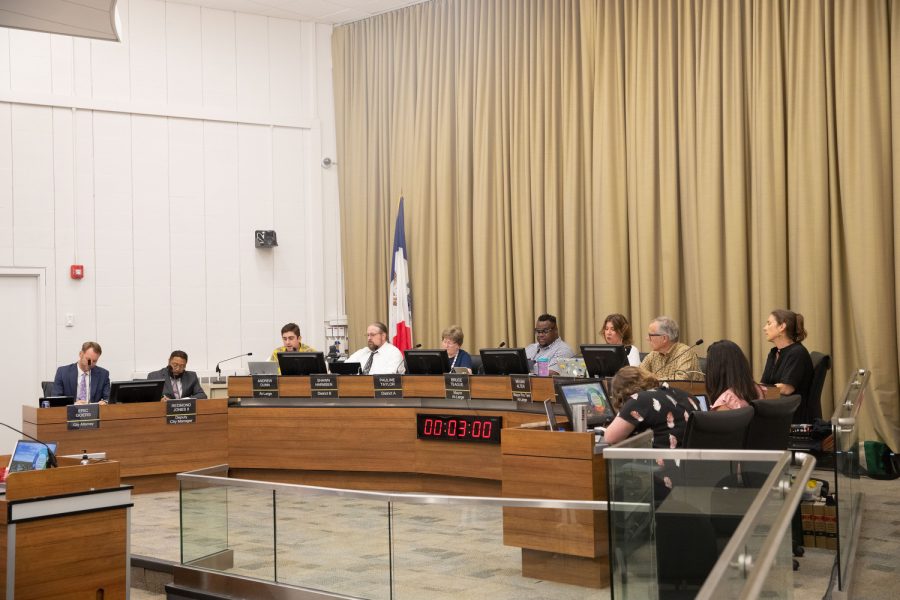Housing supply and affordability in Iowa City may see positive progress as a result of various zoning code changes approved by the city council in a 5-1 vote Tuesday night.
The changes include a total of 14 different code amendments that revolve around building design and zoning standards, incentives for developers, and equitable housing options.
These changes aim to help increase the number of houses available in Iowa City to make the housing market more affordable.
The average rent for a two-bedroom apartment in Iowa City is $1,082 a month, according to U.S. Department of Housing and Urban Development fair market rent fiscal 2024 data.
The 14 changes fall under five different categories relating to the goals they aim to address.
The first, second, and third categories relate to increasing flexibility in the zoning code by allowing certain housing types not previously allowed in specific zones and changing dimensional and design standards to allow more variance in housing types.
One example of this is an amendment that would allow duplexes in single-family residential zones.
The fourth category creates financial incentives for developers to encourage the building of affordable housing units by creating cost-of-construction offsets within the code.
The fifth category changes the code to make it easier and more streamlined for individuals with disabilities to request housing accommodations.
Some citizens at the meeting, including former Iowa City Mayor Jim Throgmorton, said they felt the general public did not have enough time to be made aware of these changes and fully understand the technical language of the amendments.
City staff first made the public aware of these specific amendments in July, but the work to develop the amendments has been in progress since around 2016, said Danielle Sitzman, Iowa City’s development services coordinator.
During that time, Sitzman said city staff conducted many public engagement events to inform the city on how to proceed with its desired changes.
Councilor John Thomas expressed his disapproval of the amendment by stating he felt these changes would actually incentivize short-term renting complexes near the University of Iowa campus.
This would ultimately not accomplish much in the context of trying to increase affordable housing in the city because of how competitive the renting market is, he said.
“The question in my mind is how do we insist that the change to the code will result in affordable housing?” Thomas said. “Market forces are driven by profit [and] there is no profit in affordable housing. The profit is in finding how you can get the most rent.”
Councilors who were in support of the amendment said while it is hard to tell what the future impact of these changes may be as of right now, the topic of affordable housing is an important one that the city must work to make progress in.
Councilor Laura Bergus said while she appreciates public feedback and concern, the council cannot afford to waste any more time combatting this issue as it is something that has become a crisis for those in the community who are without homes.
“I think we really do need to act with urgency,” Bergus said. “This is a very carefully crafted, well-thought-out proposal that has been vetted and discussed for a very good amount of time.”
The city council passed the first consideration of the amendments in a 5-1 vote, with Thomas in opposition. Mayor Pro Tem Megan Alter was absent from Tuesday’s meeting.
The council will vote on the second consideration of the amendments at its next meeting on Oct. 3. The final vote, and thus official passage of the amendments, will be voted on at the Oct. 17 meeting.



